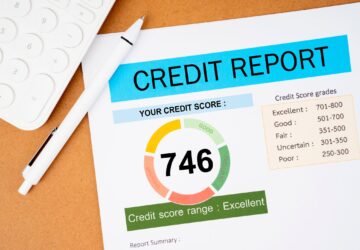The real estate market has shifted online. It used to be an industry that mostly relied on traditional marketing and cold calling, but that is no longer the case. Today, the real estate industry relies heavily on social media marketing, and this is how you can set up your property for the same.
1. Keep Your SEO in Check
If you are looking for a quick house sale on social media, you must prioritize SEO. The marketing community feels that hashtags are more like tools to enhance engagement. However, if you are a professional marketer, you can use hashtags to get more than likes and comments.
Even as you use hashtags, try to vary the levels of specifics. For instance, you can use generic hashtags to enhance engagement and improve visibility. Extremely targeted hashtags can be great when you need to get potential buyers.
2. Use Valuable Real Estate Ideas
As long as your company has a website, it will also have a blog. The problem is that most blogs are not active enough, or rather fail to provide value to their audiences. Your blog shows your audience that you are a true expert in the real estate industry.
Your blog must be optimized to attract the right persons with the potentials to buy your property. Create articles on market stats or predictions, tips for homeowners, and what to consider when buying houses. Through links, you can share your content on social media to improve the chances of selling your property online.
3. Focus on The Neighborhood as Well
The most important thing you must have in mind when improving your social media is by loving your job. Your followers can easily identify how much you love and enjoy what you do. Unless they notice that you value and love your job, they won’t engage with your publications.
One of the best ways to achieve that is by going way beyond the property you list. For instance, you can talk about the places in which the homes or houses are located and be positive about them. That is the only sure way to kill two birds using one stone.
4. Share Your Success Stories
It is easy to feel that posting each time you close a deal is bragging. But you should see it as a technique for building confidence and gaining trust. If many people can see you buying and selling property, they get to trust you and what you do and will be looking to work with you.
Your content must be as powerful as possible. Each time someone gives a shout out to your page, you need to share that with your audience. Suppose your customers are online, they will always tag you to improve engagement.
5. Use Automation Tools
Today, there is a wide range of tech tools that you can use to make the journey easier. According to experts, some hours are great for posting, and you should know them based on your target clients. If you are targeting a given group, you need to know when they are mostly online and the kind of things they are looking for.
These automation tools will help you post at the right time so that you don’t miss important opportunities. They include content planners, postponed or scheduled posting tools, and a social CRM system.
6. Focus on Already Exiting Buyers and New Leads
When trying to build your social media marketing strategy, you are supposed to divide your efforts equally to focus on both existing buyers and new leads.
Each time you generate content, make sure it is relevant to both groups, and you will record a lot of success. To create relevant and exciting content, you need to understand your audience and what other businesses are not able to provide them with and give them the solutions.
Final Thoughts
Social media marketing is one of the best ways to take your real estate company to greater heights and make a quick house sale. However, the journey might be bumpy and confusing. You might not be sure when to generate content and the best hashtag to use. However, with the tips above, you are highly likely to succeed.
6 Tips to Step-Up Your Real Estate Social Media Marketing
Written by: Amit Gupta
December 14, 2020
Reading Time: 3 minutes
Last modified: December 14, 2020
About the Author / Amit Gupta
Amit Gupta is the Founder of Tech Magazine. He writes a personal blog and creative digital marketer with 5+ years of experience. He is also SEO Analyst on Four Tech digital Lab. Follow him on Facebook, Twitter.








